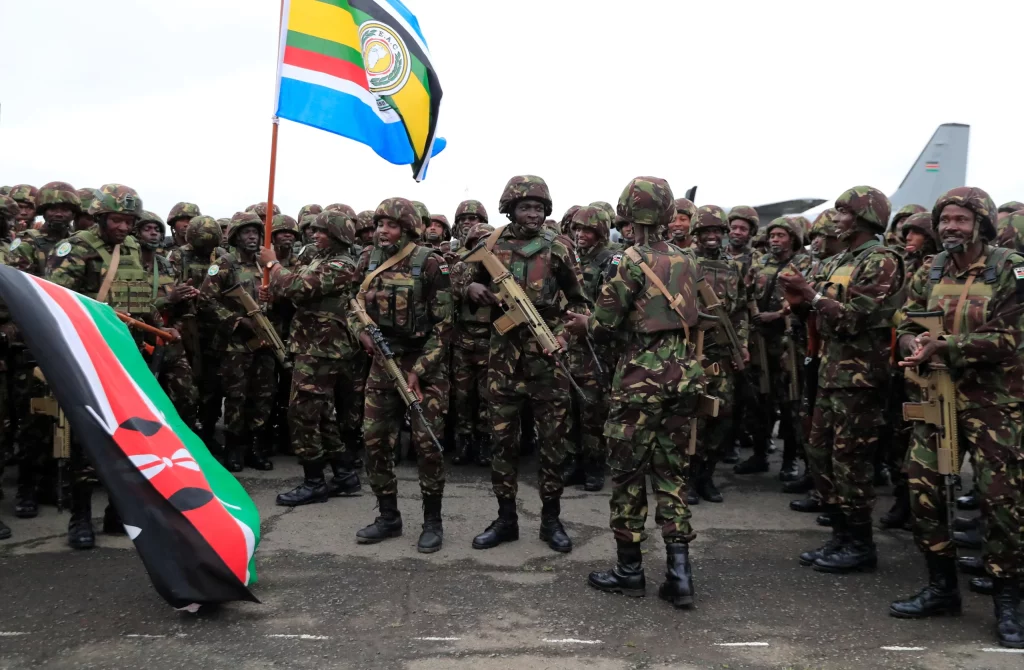African Bloc Expands Team of Leaders to Oversee Peace Talks in Eastern Congo as Tensions Rise

African regional groups have increased their team of former heads of state to help resolve the ongoing conflict in eastern Congo, aiming to restart stalled peace talks.
The most recent setback happened on Monday when the M23 rebels went back on their promise to withdraw from the key town of Walikale, accusing the Congolese army of continuing attacks there.
The conflict began after the 1994 Rwandan genocide and is fueled by competition over Congo’s rich mineral resources.
Since January, when M23 stepped up its attacks, the rebels have taken control of two of eastern Congo’s largest cities, causing thousands of deaths and raising fears of a larger regional war.
Following a virtual summit on Monday, major political groups from Southern and Eastern Africa appointed five former heads of state to assist in the peace process. The appointed leaders are Nigeria’s Olusegun Obasanjo, South Africa’s Kgalema Motlanthe, Ethiopia’s Sahle-Work Zewde, Kenya’s Uhuru Kenyatta, and the Central African Republic’s Catherine Samba Panza. The Congolese government stated that this new group would select a mediator to replace Angolan President Joao Lourenco, who stepped down on Monday after years of limited progress in resolving tensions between Rwanda and Congo.
Rwanda, which has faced sanctions from several Western countries for allegedly supporting the M23 rebels with weapons and troops, announced on social media that summit leaders had agreed on a political solution to address the security concerns of all involved.
Although Rwanda denies supporting the M23, it states that its military is defending itself against the Congolese army and militias hostile to Rwanda.
The conflict has increased tensions in the region, with the armies of Congo, Rwanda, and Burundi all involved in the fighting.
Burundi’s President Evariste Ndayishimiye, whose forces have fought alongside Congo’s army against the M23, warned in a BBC interview that Rwanda “has a plan to attack Burundi.” He emphasized that Burundi would not allow its people to be killed like the Congolese. Despite these statements, officials from both countries have recently met to discuss border security.
Rwanda’s government spokesperson, Yolande Makolo, responded by calling the comments “surprising,” noting that Rwandan and Burundian defense officials have been in talks to secure their shared borders.
